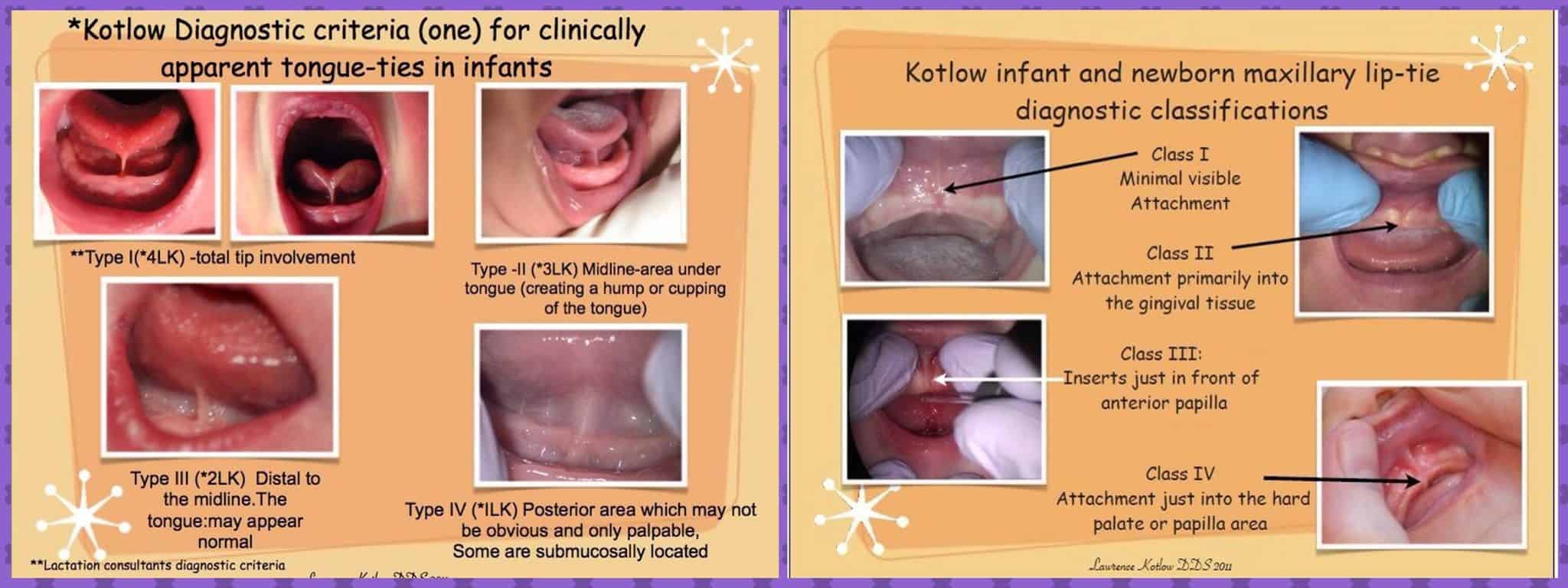Lip ties. It is something that many parents may not be aware of when their baby is born, but in some cases it can have a significant impact on your child’s first years of life. In short, a lip tie is when the little piece of skin that helps to anchor the upper lip to your gums is either too short or placed in an atypical fashion. That little piece of skin is called the maxillary labial frenum. We’ll learn more about lip tie and its effects today and cover some important questions on how you can identify it in your child and what can be done about it.
First and Foremost
When your baby has a lip tie, regardless of the classification, there is a 90-95% chance that your baby also has a TONGUE TIE. Please see the resource below for the leading pioneer in this field, Dr. Robert Ghaheri. Tongue tie is usually more detrimental than the lip tie for your baby because the tongue is what drives oral function not only for feeding, but also for sleep, jaw development and airway development. Tongue ties can be really challenging to diagnose and sadly, most providers, including pediatricians are not appropriately trained to diagnose them (this training must be sought after medical school and on an ongoing basis).
What Is Lip Tie, Exactly And What Are The Signs That My Baby Might Have One?
As we said before, a lip tie is when the skin that connects the flesh of the upper lip to the gums area is atypically positioned or sized in such a way that it interferes with the ability of the child’s upper lip to move freely. It can appear as a small string-like piece of flesh at the top of the lip on the back side, or even a wide band of tissue as well. There is no one way for it to appear, necessarily and there are multiple classifications.
What Are The Signs That My Baby Might Have A Lip Tie?
There are several things to watch out for when you may suspect that your child has a lip tie. One sign is that your child may develop a callus at the center of their upper lip. Another sign is that you and your child may have difficulty breastfeeding. Things that may crop up as complications due to lip tie are (but not limited to):
- Inconsistent latching.
- Poor mouth to nipple seal.
- Slow weight gain.
- Longer feeding times in general due to difficulty to get enough milk at once.
- Reflux.
- Excessive spitting up.
- Nipple pain, or “lipstick: shaped nipple.
- White coating on your baby’s tongue (not thrush, thrush will be on the cheeks too).
- Irritability, “Colic” or discomfort in your infant.
- “Noises” when your baby is eating, either while breastfeeding or bottle feeding.
- Lip blisters.
- Dribbling of milk out of your baby’s mouth while feeding
- Mouth breathing (lips are not closed during sleep).
- Failed breastfeeding, especially early on.
- Mastitis or clogged ducts in the mother.
What Are Some Options For Dealing With Lip Tie?
There are several options for helping an infant with lip tie. If it is a relatively minor case and there aren’t a lot of detrimental side effects that are preventing the child from nursing or gaining weight, then one option is to do nothing. Not every case of lip tie needs to be “fixed” necessarily. It is up to the parents and their care provider to decide if taking steps is the best thing for the child’s development. The other option for dealing with lip tie is surgical. The procedure is called a frenectomy “revision” and it will eliminate the lip tie so that your baby can latch and feed properly afterwards.
Resources
https://www.facebook.com/groups/tonguetiebabies/
Parting Thoughts
Tongue and lip ties should always be revised based on functionality and symptoms of the baby and mother, rather than solely on visual presentation. If there are symptoms as noted above, it is very likely ties are contributing and need to be properly evaluated to understand if treatment should be sought.
Here at The Early Weeks we are very educated in tongue and lip ties, primarily because we have a lot of firsthand experience with them! They can be directly linked to feeding and sleep challenges new parents face. We personally do not diagnose them, but we evaluate for them, know the symptoms, treatment and recovery procedures. We work very closely with and refer to only a few providers for treatment because we know and trust them to do a great job with our families.
If you have any questions about tongue and lip ties, please reach out. Our Pediatric Sleep Consultants, Newborn Care Specialists and Postpartum Doulas would love to help! Please reach out to us here!

![]()
